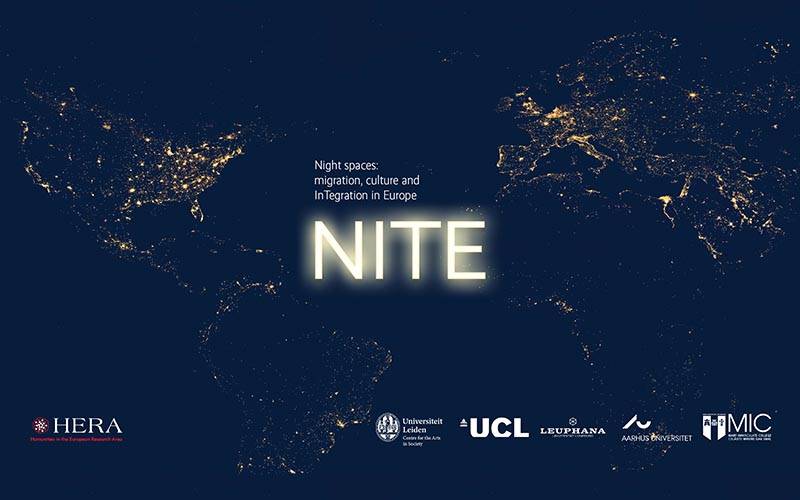Transdisciplinary collaboration to understand the how night spaces are dynamically produced, imagined, experienced and narrated by migrant communities across eight European cities.

UCL Urban Laboratory Co-Director Professor Ben Campkin is the British lead in an international research project awarded a €1m Humanities in the European Research Area (HERA) grant to study how night spaces are produced, imagined, experienced and narrated by migrant communities in eight European cities. The project will see collaboration across an international team of researchers, led by Dr Sara Brandellero (Leiden University).
Night spaces: migration, culture and IntegraTion in Europe (NITE) will entail an ambitious programme of community co-designed cultural events and activities, and close engagement with policy-makers, with the aim to positively influence policy approaches on night-time economies, helping to release the potential night spaces offer in creating more inclusive cities.
Authorities have historically wrestled with the issue of night-time control, and the hours after dark are often still perceived as harbouring threats to public order and potential criminality. However, current policy attention to night-time urban economies, exemplified by the creation of the office of Night Mayor in Amsterdam (2014) and Night Czar in London (2016) illustrate the increasing interest in the potentialities of the urban night. NITE will contribute with otherwise overlooked evidence on the production, experience and narration of migrant urban night spaces, in their material, symbolic and virtual dimensions.
The project brings together five parallel subprojects mapping night spaces in eight cities in the Netherlands, Ireland, UK, Germany, Denmark and Portugal.
- Lesbian, Gay, Bisexual, Trans and Queer (LGBTQ+) night spaces orientated around migrant identities and histories in London, 1980s - present (UCL)
The UCL team, led by Prof Campkin, will focus on how LGBTQ+ migrant communities have created public spaces at night in London. This work will build on collaborations with Raze Collective, a charity supporting LGBTQI+ performers, and the London Night Czar.
- Migrant bike couriers in the 'smart city' at night (Leuphana University)
The Leuphana University team (in conjunction with Humboldt University), led by Prof Manuela Bojadzijev, will study migrant bike couriers at night within Berlin’s smart economy.
- Migrant youth out of place? Cross-cultural understandings of Night and Belonging in Lisbon and Aarhus (Aarhus University)
At Aarhus University, Dr Derek Pardue will lead comparative research on migrant youth and questions of belonging, surveillance and policing in Lisbon and Aarhus.
- Strangers in the Night: African Migrant Music-Making in Irish Cities (Mary Immaculate College, University of Limerick)
At the University of Limerick, the team led by Dr Ailbhe Kenny will study African migrants’ community music making in Cork and Galway.
- Night narratives of integration in the Netherlands (Leiden University)
At Leiden University, Project Leader Dr Brandellero will collaborate with Dr Kamila Krakowska and Prof Frans-Willem Korsten to research migrant night cultures in Amsterdam and Rotterdam.
With migration a defining characteristic of contemporary urban life, key and often polarising in current policy, political and public debates in Europe, NITE aims to support community wellbeing and better integration at local, national and transnational levels.
NITE formally commenced on 20-22 May 2019 with a kick-off meeting generously supported by the Hanse-Wissenschaftskolleg Institute for Advanced Study (HWK) in Delmenhorst, one of NITE’s Associate Partners.
 Close
Close

